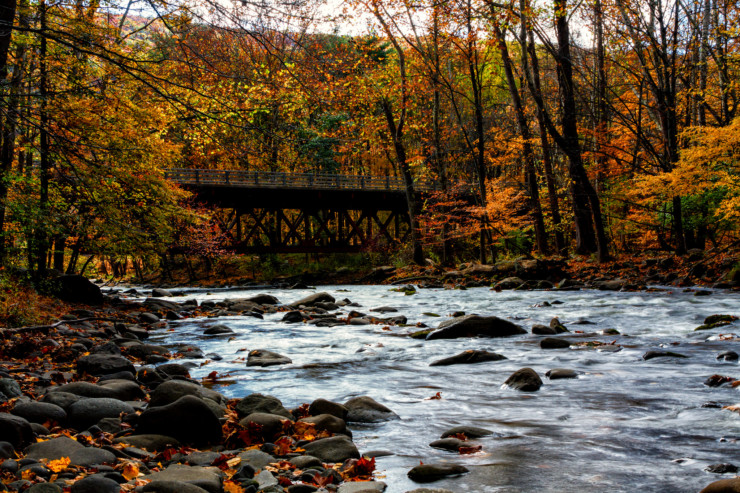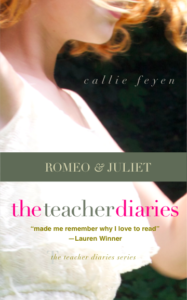
Before I read a story, I read a poem to the kindergarten classes that come to see me in the library. I choose silly poems, poems that can be acted out, poems that rhyme and have a good beat. Such was the case with a poem called “Mr. Skeleton.”
Mr. Skeleton where’s your bone?
Somebody stole it from your home!
Guess who?
Maybe you!
Now, Mr. Skeleton, find your bone!
Once we got familiar with the words, I had the students stand up and form a circle. Someone stood in the center as “Mr. Skeleton” and covered his or her eyes. The rest of the class put their hands behind their backs and chanted the poem while I moved among them, placing a marker (our pretend bone) in someone’s hand. When the poem was over, Mr. Skeleton guessed three times to find his stolen bone.
It’s a rowdy poem, and it’s kind of scary too, but it was so much fun. I couldn’t get enough of the smiles or the stomping or the hip shaking and the raised voices when we shouted, “FIND YOUR BONE!”
No matter the story, I love finding a way to make it come alive for students. This is what I was thinking as I left school to get a cup of coffee on my lunch break. While I drove, the song on the radio was good, the sun was shining on a crisp autumn afternoon, and I was headed for perhaps the best coffee shop I’ve been to (and I’ve been to a lot). As if I was in a movie, a wind blew, dragging leaves across my windshield. I blinked and encountered a memory of an afternoon discussing The Hobbit with a group of seventh-graders.
I don’t remember what I’d planned to do that day, although I know we were well enough into the book to discuss Bilbo Baggins, the possessive dragon, crazy Gandalf, the mischievous elves, and the rowdy dwarves. All I remember is one of my students raised her hand and questioned whether we ought to read J.R.R. Tolkien because we were in a Christian school.
I took a breath to steady myself and quickly call on God, Gandalf, and Professor McGonagall to help me turn what I knew was a challenge into an opportunity.
It has been my experience that seventh grade is a different beast than sixth and eighth grades. Suddenly my classroom was turned into what felt like a college level English course. I no longer needed to call on raised hands or direct students to a certain page number or say something like, “Remember this plot point” because they were doing it themselves.
The conversation was lively, but it wasn’t disrespectful. Students discussed their faith and how what they read both challenges and deepens what they believe. Those that were fearful of the magic and the monsters in the novel could express that — safely — on this day and nobody rolled their eyes or made fun of them. In fact, the more adventuresome, mischievous students — Tolkien might have called them the dwarves of the class — were the ones who gently but passionately explained why magic and monsters were needed in almost any story worth reading.
How else can we make sense of things unseen?
The coffee shop is just down the road form my school, but by the time I’d parked the car, I felt like I’d been in a time machine. I remembered what I was wearing, I could see my students, smell the classroom, I could feel my copy of The Hobbit in my hands.
Andrew Whitman’s Sinner’s Sonnet came on the radio. I’ve always felt a little humorous thrill singing along with the first lines: “I’m leaving, and there’s no coming back / Got no room for places like this in my sack,” but that afternoon I was sad.
I thought of Bilbo Baggins racing away from the Shire in the hopes of catching up with the dwarves so he could go on an adventure he knew he was not equipped to go on and had no interest in going on in the first place, but no matter. The Took side had taken over. I thought of Mr. Skeleton, looking for his bone.
On that short drive I realized how very sad Mr. Skeleton must’ve been to lose part of what held him together. Like him, something in my life is missing. The memories of what used to be — of what I used to be — came out to play on a perfect fall day when I was just trying to grab a cup of coffee. They came out to play like the kindergarteners did, smiling, their hands behind their backs, taunting, “Try and guess where the thing you lost went!” And even if I find it, will I be able to put it back? Will I be the same?
Try It
For this week’s prompt, look at your heart map, or perhaps, if a memory comes out to play on a given day, as it did for me, take a moment to wallow in and sit with it. Write a poem about that lost memory that’s presented itself to you through your heart, or in your day.
Featured Poem
Thanks to everyone who participated in last week’s poetry prompt. Here’s one from Richard Maxson that we enjoyed.
The small Christmas cardigan
lost, the reindeer unraveled,
set free in the snow.
The Milky Way floats
like distant flakes
lost in their drifting.
There is a day, a smile,
in the time that snow
fell in the flash of warm light.
I always find you there.
Photo by Jim Lukach, Creative Commons, via Flickr. Post by Callie Feyen, author of The Teacher Diaries: Romeo and Juliet.

—JJN Mama, Amazon reviewer
- Poetry Prompt: Courage to Follow - July 24, 2023
- Poetry Prompt: Being a Pilgrim and a Martha Stewart Homemaker - July 10, 2023
- Poetry Prompt: Monarch Butterfly’s Wildflower - June 19, 2023
Richard Maxson says
Callie, your prompts are always wonderful stories. I wish I had teachers like you when I was in seventh grade.
Thank you for featuring my poem.
Richard Maxson says
The Baby in the Barn
Like these words, you were stolen.
Symbols beget symbols,
but these days you are lost in them,
like a blue flag against a clear sky,
or desperate breaths in a giant wind.
Today you would be left in a car,
while your mother picked up her check
from the wise men. Things have changed:
Someone would discover you
on the scanty farm, the three of you
huddled among the hungry animals.
The headlines would read: Baby Found With Cattle!
You would be rescued by good intentions,
but function follows fate, the fall comes calling.
The headlines would read: The Baby in the Barn Left in a Car!
Abandonment needs its mandalas.
There were great plans for you that night,
best you should have kept it quiet, kept the lights low,
you were warm, in the company of kindness
and simplicity and love without reason.
Now, with gold, perfume, and spices, they come for you,
but distance swallows them. The epiphany is lost,
in the lights of each new year under the invisible stars.
Katie says
Richard,
My favorite lines of this superb poem:
“you were warm, in the company of kindness
and simplicity and love without reason.”
Megan Willome says
PEDERNALES FALLS
Take an ordinary waterfall
Lay it sideways
over a limestone bed
When I brought you here after the floods
you leapt between boulders
Before I could yell, Don’t
you’d done it. There were no signs
no compass, no way to tell where we were
but you stepped as sure-footed
as the man today who helped his pit bull
down a slick space.
It was not until he strode away
that I saw his artificial leg
a veteran of foreign falls
his secrets safe
Richard Maxson says
Wow! Powerful, unexpected finish, Megan.
Isabelle G. Schlegel says
What a relatable post, especially in the time I’m going through currently. We often idealize the past in difficult moments, possibly because we need something to hold on to. We mourn what we cannot have any longer. But do we remember the difficult moments within our childhood? The tiny moments, that once felt so large they seemed to last forever, just like now?
We bring cameras to weddings and graduations, and to prom, but not to midnight drives called upon spontaneously. Not to coffeeshop hangouts with friends, or to aimless walks amidst nature which still held even a grain of wonder. Yet, it is these small instances, these moments, that sneak up on us. It is these we will want back, however far into the future. It is these memories, tainted by time, that we will mourn when we find we have lost them.
Drummer Girl
Marching, marching
Down the gravel road
Revered.
She is the Drummer Girl.
Stepping forward,
Then again,
Summer pounces off
The pendulum
sun- it swings
from day to night,
Black to light.
Stars hang high like dreamy figures
Suspended from a revolving
Mobile.
Creeping, creeping
She tiptoes around sudden
Jutting stones.
She is the Drummer Girl.
Rising from Earth
Ear to ear
Listen,
Don’t step there
Whispers bite at her fingertips-
She pushes them
Far away. Catching
On a craggy mountain slide
She tumbles down,
Down.
Beating, beating
Her drum plays on. With the sound
of the rocks, cracking-
She is the Drummer Girl.
Sticks tantalize
The surface that echoes
And paints the walls,
That animate and come
To life.
Running, running
Beside her, and laughing.
Laughing with her.
At her. Against her
The wind huffs,
Proud as the wolf.
You can’t touch
What isn’t there.
Drumming, drumming
The same rhythm as
The one written under the mobile.
She is the Drummer Girl.
Arms lock straight at
Ninety degrees,
Pounding. The song of
The birds, that quiet to hear.
The song of the thrush
The hush that comes at last
When it closes its wings.
She marches on.
Stepping
Creeping
Rising
Beating
She is the Drummer Girl.
She marches on.
Reminiscing, reminiscing,
Her beat plays on.
I am the Drummer Woman.